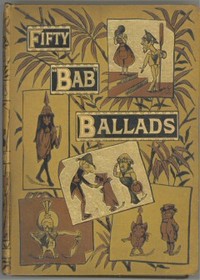Ballad: The Reverend Micah Sowls
byThe Reverend Micah Sowls begins his story as a thunderous voice from the pulpit, railing against the theatre with a fire that nearly scorches the air. His condemnation is not just moral, but theatrical in itself, delivered with such dramatic flair that even the most indifferent listener might mistake it for divine revelation. Behind this righteous fury, however, lies a quieter ambition—Sowls speaks not only to warn souls, but to impress a bishop seated among his parishioners. His sermon, borrowed from a reputable London source, lacks the personal insight he pretends to offer. With every phrase and flourish, his goal is clear: to be noticed, perhaps promoted, by preaching what he believes the bishop wants to hear. Yet beneath the polished rhetoric, there is an emptiness—a borrowed outrage wielded with confidence, but not conviction. It is performance masked as faith, irony cloaked in robes of piety. And the congregation, unaware, nods along.
After the sermon ends, the bishop engages Sowls with warmth and curiosity. His question is simple but piercing: has the Reverend ever stepped foot inside a theatre? Sowls, slightly flustered, confesses he has not. All his criticisms stem from what he’s read and what he’s heard—never from personal witness. The bishop, smiling gently, reveals that he has attended several performances, particularly enjoying the works of Shakespeare. His tone remains kind, but the message is clear: judgments made without experience are built on shaky ground. The bishop’s subtle challenge turns the Reverend’s sermon inside out—not with harshness, but with a suggestion. Perhaps, the bishop implies, there is more virtue on the stage than Sowls suspects. It is a quiet rebuke, offered not to shame, but to enlighten. In that moment, the clergyman who preached fire is left blinking in a soft but revealing light.
As the bishop departs, he leaves Sowls with a simple task: attend a play and judge for himself. This invitation is both generous and sharp, allowing room for change without demanding apology. The bishop’s wisdom lies in exposure, not argument—he believes that seeing truth is often more powerful than hearing about it. For Sowls, the moment is one of uncomfortable reflection. His sermon, crafted to impress, has unintentionally revealed how little he understands the thing he so fiercely opposed. The moral here is neither scornful nor condemning; rather, it underscores the value of firsthand experience over hearsay. Sowls is not a villain, but a man caught in the habit of borrowed opinions. Through gentle satire, the ballad reveals how often people wrap their ambition in borrowed virtue.
This humorous portrait of Reverend Sowls offers more than just a jab at religious hypocrisy—it speaks to a broader habit of condemning what we’ve never encountered. Whether in art, belief, or society, assumptions made in ignorance often sound loudest. The poem reminds us that true moral authority comes from understanding, not imitation. When Sowls preaches against the stage, his borrowed words reveal a borrowed fear. Yet the bishop, wise and tempered, knows that cultural institutions like theatre can hold truth as well as folly. Shakespeare, with his flawed kings and noble fools, offers as much moral insight as any sermon. This contrast between rigid condemnation and thoughtful observation drives the ballad’s message: don’t dismiss what you haven’t faced.
In the end, Sowls is left not silenced, but opened. His voice, once booming with secondhand warnings, may soon soften into one of curiosity. Perhaps he’ll sit in a theatre someday, and find humanity speaking through actors’ lines—flawed, beautiful, and deeply real. That possibility, subtle but strong, gives the ballad its lasting power. It asks not for perfection, but for humility. And in the hands of Gilbert’s wit, even a fable about borrowed sermons becomes a lesson in learning how to truly see.

